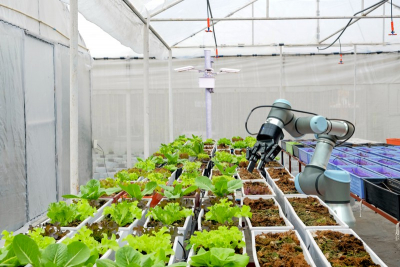There's a lot of talk about digital transformation at the moment. Visibly, the effects of our access to the Internet and digital technology are most noticeable with the closure of high street brands like Mothercare and Toys R Us. Behind the scenes, manufacturing and agriculture are embracing digital technology and robotics at an ever increasing rate. Indeed, when we talk about digital transformation in the workplace, thoughts probably jump to robots and artificial intelligence; automatons taking over the jobs that are, or were, traditionally done by humans.
But not so fast. Digital transformation is in fact all about people.
For employers, it’s about having a strategy to bring employees into the 21st Century by equipping them with the skills and knowledge to thrive in a digital age.
It’s a shame to see the demise of well-known high street names, some of which have been with us all our lives. However, we cannot deny that it has been a failure by the leaders of these organisations to move with the times, embrace technology and recognise its impact on consumer habits that has ultimately led to their collapse.
We should also recognise that technology for technology’s sake is not a solution. I’m sure I’m not alone in hearing stories of businesses spending thousands of pounds developing “an app that will revolutionise the industry”. Often however, little thought is given to how that app might affect employees or the processes they follow to do their jobs. When costing app development, remember to plan for implementation and to allow for employee training or for the recruitment of staff with specialist skills.
As we look at implementing digital transformation across an organisation, it might pay to categorise our employees so that we can apply the most appropriate strategy to them. We can identify three distinct groups:
- Digital Dependants: These are people born at or after the turn of the century and who have always known life with digital technology. For them technology is a must-have.
- Digital Natives: Are those who grew up alongside technology and have seen the changes happen. Being able to adopt and adapt to change is likely to come naturally for this group.
- Digital Migrants: Born without mainstream technology, this group have had to make a step-change from life without to life with.
There is nothing to say that any one group has an advantage over the others when it comes to digital transformation. What is important is that we recognise that the differences exist. We need to understand the composition of our own workforces so that we can take this into account when implementing any form of technological change. How our people are likely to react will influence the pace of change and the levels of training required.
For example, if you install a digitalised HR system to control processes like absence management, holidays and appraisals, you might need to ensure that everyone has the technological ability to access it as well as the necessary skills. You might also need to ensure that there is a contingency for when it becomes inaccessible; when there is a loss of Internet service for example.
The pace of technological innovation continues at a blistering rate, so we’re probably closer than you think to driverless cars and Saturday night takeaways delivered by drone. If you feel like there’s a storm brewing, you might benefit from some support with organisational and cultural change. We’d be delighted to help; in person of course. Call us on 01452 331331 or at This email address is being protected from spambots. You need JavaScript enabled to view it.



